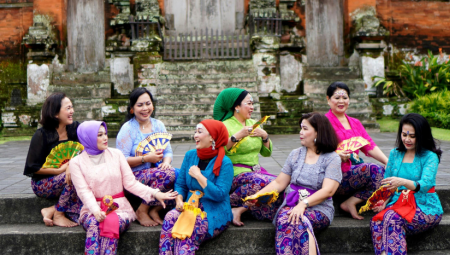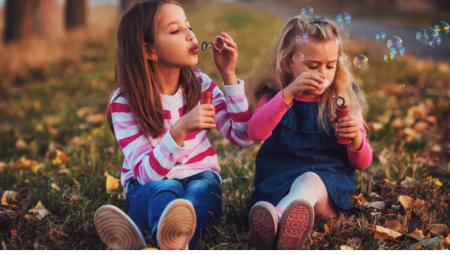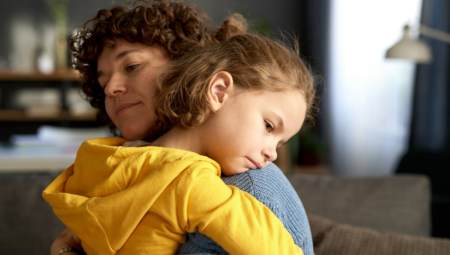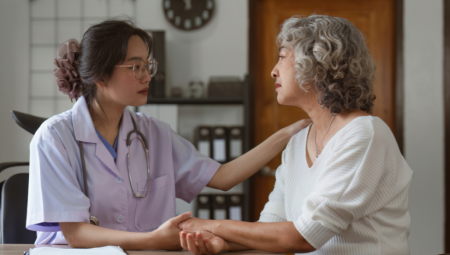Background
People with learning disabilities and autistic people often experience poor health and mental well-being. Barriers to accessing healthcare are considerable, often falling through the gaps of health and care provision, leading to health inequalities and shorter lives for this population.
Public engagement and research activities often fail to engage and listen to the perspectives of people with learning disabilities and autistic people. We wanted to explore whether creative activities would be an inclusive approach to engage with people about their health and wellbeing.
In this project, we used creative methods with people with learning disabilities, autistic people and the people who care for them, to find out what is important to them for their health and wellbeing. We collaborated with two community organisations - Barnet Mencap and Lowestoft and District Mencap – and their members, who have mild to moderate learning disabilities and/or autism.
Project Aim
To make time and give space, for researchers and people with mild to moderate learning disabilities, autistic people and their carers (paid and unpaid) in community organisations, to learn together and create sustainable research partnerships.
The objectives for this project were:
- To use creative methods to develop ideas with people with a learning disability and/ or autism and their carers (paid and unpaid) about their health and wellbeing to generate research priorities and questions.
- To explore what ‘success’ looks like, in terms of working together, for the mutual benefit of all partners and people involved in this project.
- To evaluate the project from everyone’s perspectives and experiences and to reflect on lessons learnt, what went well and not so well, and how to improve for future partnership working, in this project and beyond.
Project Activity
We used creative methods with groups from two Mencap organisations in Barnet and Lowestoft to identify what is important to them for their health and wellbeing.
There were four work packages (WP):
WP1: Scoping review of creative methods in research with people with learning disabilities and autistic people.
WP2: Engagement workshops with Mencap members (July 2023 to October 2024) with 14 visits to each group. The workshops had four phases:
'Getting to know each other. ' We joined Mencap members in their activities, finding out what they like doing. Art, music, gardening, wellbeing, healthy eating and relaxation.
‘Making plans together.’ Giving feedback and learning how to work together.
‘What’s important? Exploring health and wellbeing.
‘Making sense together.’ Creative engagement activities, to make sense of what we learned together, and topics for future research.
WP3: Sharing our Learning. A celebration event was held with 37 people. We shared experiences and creative outputs.
WP4: Evaluation and Dissemination. Using creative methods, we grew ideas in a fun and accessible way, which led to co-producing logic models with Mencap members, focused on health and wellbeing and healthy eating.
There has been public involvement throughout the project, from the development of ideas to dissemination and impact. Public partners have played pivotal roles as project co-lead, co-applicants, co-researchers and actively engaged, Mencap members.
Findings
It takes time and space to engage with people with learning disabilities and autistic people, to build relationships and research partnerships. Creative engagement activities are a supportive way to ‘open up’ conversations with people with mild to moderate learning disabilities and autistic people about their health and wellbeing.
Outputs, impact and dissemination
We have co-produced conference presentations, workshops, a scoping review protocol and a blog. We are developing different ways of sharing our learning for different audiences, including accessible outputs (EasyRead materials, videos, podcasts) and journal articles.
Conclusions
Creative engagement activities are an inclusive and accessible approach with people with mild to moderate learning disabilities and autistic people. We have successfully engaged with a traditionally perceived ‘underserved’ community, who have become ‘research active’ organisations and individuals from their involvement in this project.
Watch the CLAPS Easy Watch presentation
Who was involved?
- Co-Principal Investigator: Julia Jones, University of Hertfordshire
- Co-Principal Investigator: Amander Wellings, Public Involvement Contributor
- Co-Applicant: Elspeth Mathie, University of Hertfordshire
- Co-applicant: Jacqueline Guyton, Public Involvement Contributor, Lowestoft and District Mencap
- Co-applicant: Faib Riley, Public Involvement Contributor
- Co-applicant: Helena Wythe, University of Hertfordshire
- Co-applicant: Silvana Mengoni, University of Hertfordshire
- Co-applicant: Rajnish Attavar, Hertfordshire Partnership University NHS Foundation Trust
- Fred Inglis, Research Associate, Kingston University
- Charis Bontoft, Senior Research Assistant, University of Hertfordshire
- Sam Bishop, Barnet MENCAP
- Rose Goodman, Barnet MENCAP
Contact
Professor Julia Jones. J.jones26@herts.ac.uk
Disclaimer
This project is funded by the National Institute for Health and Care Research (NIHR) under its Programme Development Grants (PDG) Programme (Grant Reference Number NIHR205193) and is supported by the National Institute for Health and Care Research (NIHR) Applied Research Collaboration East of England (NIHR ARC EoE) at Cambridgeshire and Peterborough NHS Foundation Trust. The views expressed are those of the author(s) and not necessarily those of the NIHR or the Department of Health and Social Care.





